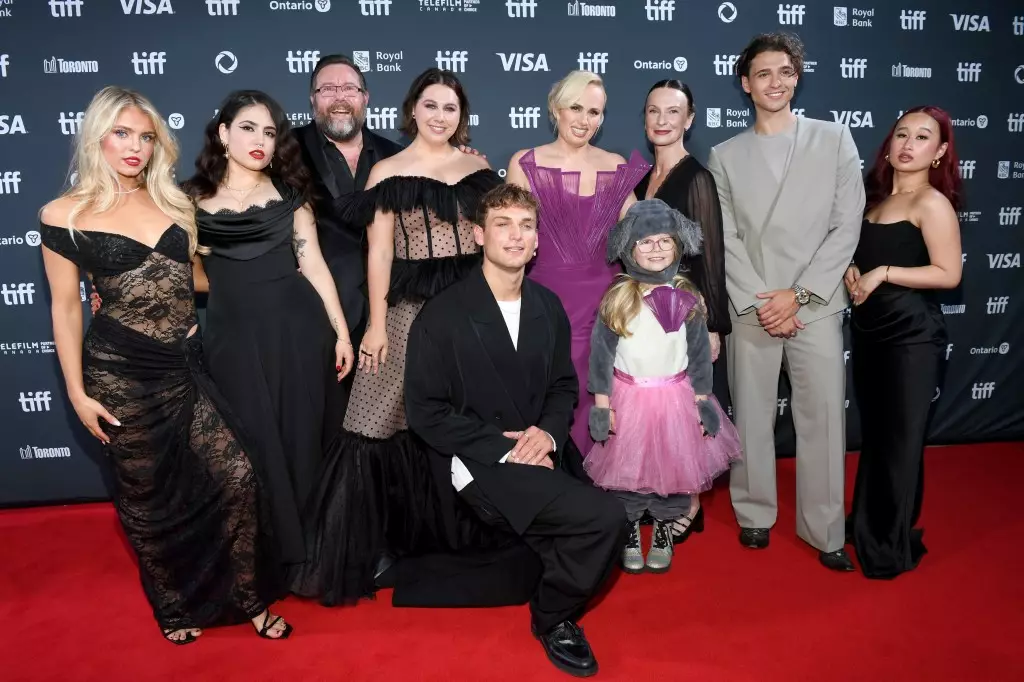Rebel Wilson, the multifaceted actress known for her roles in popular films such as *Pitch Perfect*, has recently found herself embroiled in a complex legal battle with several producers associated with her latest project, *The Deb*. The events surrounding this lawsuit not only highlight the intricacies of Hollywood production but also illustrate a broader conversation about accountability and ethical practices within the industry. Wilson’s counter-complaint, filed on September 26, marks a significant escalation in this ongoing dispute and signals her steadfast determination to advocate for herself and those who have faced similar adversities.
The disagreement first emerged during the tumultuous summer of 2023 when Wilson publicly criticized the film’s producers. The controversy stemmed from claims regarding poor management of the film’s finances, as well as allegations of unacceptable behavior towards cast members, particularly the lead actress, Charlotte MacInnes. Initially, the producers responded to Wilson’s allegations dismissively, labelling her statements as “false and defamatory.” However, they later took a more aggressive stance by filing their own defamation lawsuit against her—a move that seemingly has only intensified the conflict.
Wilson’s decision to respond with a counter-complaint is emblematic of a broader struggle many artists face when challenging authority figures in the creative space. Her legal team, led by the assertive Bryan Freedman, emphasizes that the producers’ actions reflect a pattern of misconduct that extends beyond mere disagreement—emphasizing that bullying, intimidation, and other illicit behaviors have contributed heavily to the toxic environment surrounding *The Deb*.
The contents of Wilson’s counter-complaint, which spans a substantial 35 pages, delve into her claims against Amanda Ghost and the co-producers Gregor Cameron and Vince Holden. The suit alleges a “troubling pattern” of behavior from these individuals, whom Wilson has previously described in harsh terms. What makes this case particularly notable is the notion that Wilson is not merely seeking personal vindication; she asserts that she stands for others who have been subjected to similar harassment and abuse in the industry. This broader fight for justice resonates with many who have experienced similar injustices but may lack the platform or resources to demand accountability.
Freedman’s declarations regarding the seriousness of the allegations against the producers underscore the extensive nature of Wilson’s accusations and hint at a potential wave of disclosures yet to come. According to him, the initial revelations are just “the tip of the iceberg,” indicating that many other victims may emerge, emboldened by Wilson’s willingness to take a stand.
The ongoing legal battle between Wilson and the producers touches more than just the fates of the individuals involved; it raises critical questions about industry practices and the treatment of artists. It shines a spotlight on the dynamics of power within Hollywood, where established figures can sometimes operate above the scrutiny that lesser-known individuals face. The implications could be far-reaching, especially as audiences and industry stakeholders increasingly demand accountability and transparency from the creative processes that shape their favorite media.
This case also enters a cultural moment where movements advocating for change—such as #MeToo—have already begun altering how misconduct is addressed in various sectors, including entertainment. As such, Wilson’s case could be pivotal in the evolution of industry norms surrounding ethical production practices, potentially influencing future projects and relationships within Hollywood.
Rebel Wilson’s legal battle stands as more than just a skirmish over contractual obligations or allegations of misconduct; it embodies a larger movement toward accountability in the entertainment industry. As she and her legal team prepare for what promises to be a protracted fight, the outcomes of this case could usher in significant changes, prompting both artists and producers to reflect on their roles and responsibilities in creating a healthy working environment. This moment not only signifies Wilson’s fight for her narrative but also potentially paves the way for many voices that have remained silenced for too long in a challenging industry landscape.
